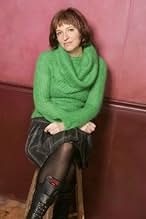IMDb RATING
7.5/10
12K
YOUR RATING
Two brothers must negotiate changing roles and shifting family dynamics when one is sent to war in Afghanistan.Two brothers must negotiate changing roles and shifting family dynamics when one is sent to war in Afghanistan.Two brothers must negotiate changing roles and shifting family dynamics when one is sent to war in Afghanistan.
- Director
- Writers
- Stars
- Awards
- 13 wins & 21 nominations total
Rebecca Løgstrup
- Camilla
- (as Rebecca Løgstrup Soltau)
Waleed Elgadi
- Samial-Tariq, Afghanistan
- (as William El-Gardi)
- Director
- Writers
- All cast & crew
- Production, box office & more at IMDbPro
Featured reviews
Brothers (2004)
A remarkable movie in several ways. The first is just that it's well made, with two main layers of story line that are compelling, and some surprising and mostly believable turns. The second is that we (in the U.S.) have a look at the war in Afghanistan from non-American eyes. The echoes are inevitable, and so are the differences, in attitude by the soldiers and in public reaction.
The lead actor Ulrich Thomsen is compelling and versatile, and in some ways makes the movie. His range (which you have to see for yourself or you'll be tipped off) is terrific. His wife, played by better known Connie Nielsen (in her first Danish movie, even though she is Danish herself, and knows seven languages) is perfect, too, though she plays someone who is admittedly "boring" and so has less range. Finally, the lead man's brother, Nikolaj Lie Kaas, is charming and a wild card, making the trio appropriately imbalanced.
I say all this because it's an acting movie, and a movie about relationships and therefore about plot. It's not a war movie, but more about the effects of war. It's recommended for people who have absorbed American movies like The Hurt Locker. But more than that, it's just a well made, emotional, human interest film. There are a couple flaws (including the key part about the helicopter crash, which just doesn't hold up to common sense), but they are small in the larger, gritty realism of the whole.
A remarkable movie in several ways. The first is just that it's well made, with two main layers of story line that are compelling, and some surprising and mostly believable turns. The second is that we (in the U.S.) have a look at the war in Afghanistan from non-American eyes. The echoes are inevitable, and so are the differences, in attitude by the soldiers and in public reaction.
The lead actor Ulrich Thomsen is compelling and versatile, and in some ways makes the movie. His range (which you have to see for yourself or you'll be tipped off) is terrific. His wife, played by better known Connie Nielsen (in her first Danish movie, even though she is Danish herself, and knows seven languages) is perfect, too, though she plays someone who is admittedly "boring" and so has less range. Finally, the lead man's brother, Nikolaj Lie Kaas, is charming and a wild card, making the trio appropriately imbalanced.
I say all this because it's an acting movie, and a movie about relationships and therefore about plot. It's not a war movie, but more about the effects of war. It's recommended for people who have absorbed American movies like The Hurt Locker. But more than that, it's just a well made, emotional, human interest film. There are a couple flaws (including the key part about the helicopter crash, which just doesn't hold up to common sense), but they are small in the larger, gritty realism of the whole.
The family man Major Michael Lundberg (Ulrich Thomsen) is happily married with his beloved Sarah (Connie Nielsen) and adores his two daughters Natalia (Sarah Juel Werner) and Camilla (Rebecca Løgstrup Soltau). His younger brother Jannik (Nikolaj Lie Kaas) has just left prison on probation for bank robbery and has issues with his father Henning (Bent Mejding). Michael invites Jannik to have dinner at home with their family. When Michael arrives in Afghanistan, his helicopter crashes and he is considered missing in action. However, he is captured and sent to a camp where he meets the radar technician Niels Peter (Paw Henriksen). After a long period imprisoned, Micahel is forced to kill Niels with a bar to survive. Meanwhile Jannick comforts Sarah and the children and he becomes close to Michael's family. When Michael is rescued, he comes back home emotionally detached and paranoid. Further, he is convinced that Sarah and Jannik have slept together during his absence. When the envious Natalia lies during the birthday dinner party of her sister telling that her mother and Jannik had shagged to upset her father, the disturbed Michael triggers an intense paranoia jeopardizing his family.
"Brødre" is a powerful and realistic drama about lives destroyed by war. This film is extremely well-acted, with an adequate cast that gives credibility to the plot led by the gorgeous and excellent Connie Nielsen. The sensitive director Susanne Bier of "Efter Brylluppet" makes another extraordinary movie based on the family dynamics. Jim Sheridan remade this film in 2009, but in a shallow teen "americanization" version. My vote is nine.
Title (Brazil): "Brothers"
"Brødre" is a powerful and realistic drama about lives destroyed by war. This film is extremely well-acted, with an adequate cast that gives credibility to the plot led by the gorgeous and excellent Connie Nielsen. The sensitive director Susanne Bier of "Efter Brylluppet" makes another extraordinary movie based on the family dynamics. Jim Sheridan remade this film in 2009, but in a shallow teen "americanization" version. My vote is nine.
Title (Brazil): "Brothers"
'Brødre'('Brothers') is a remarkable film from Denmark written by Anders Thomas Jensen and Susanne Bier who also directs this microscopic examination of the intricacies of family bonding, the significance of the blood ties between brothers, and the effects of one of the brutal realities of war on every individual member of a family. It is a tense drama made palpable by some phenomenal acting and direction.
Michael (Ulrich Thomsen) and Jannik (Nikolaj Lie Kaas) are polar opposites as brothers: Michael is his father's dream, a man who is committed to his family, his beautiful and devoted wife Sarah (Connie Nielsen) with whom he has two daughters, while Jannik is a carefree drifter who drinks too much and refuses to have the stable life his parents expect of him. Michael is off to war in Afghanistan and is in a tragic helicopter accident and reported as dead. When Sarah is informed her world crumbles, as does the mental state of her father-in-law. Jannik hears the news while drunk but slowly awakens to the awful reality that his brother is gone and his sister-in-law and nieces need the support he has never been able to muster.
In Afghanistan we discover that Sarah's inclination that Michael is not really dead is true: Michael has been captured by the Taliban and the experience as a prisoner changes him indelibly, breaking his shell of perfection and he becomes vulnerable and fragile. When Michael returns home to the surprise of everyone the dynamics that have reversed between the family and Jannik and the force that bonds Michael and Jannik is challenged and we are left to examine the fallout.
The script in Danish is supplemented with excellent subtitles in English, but one wonders if the words are even necessary - so fine is the acting of every actor involved. Connie Nielson is a major force in cinema today, a brilliant actor whose spectrum of dynamics appears endless. Both Thomsen and Kaas are equally fine in their difficult roles. This is a superlative work, a psychological drama that strikes chords of familiarity on many levels. Highly Recommended. Grady Harp
Michael (Ulrich Thomsen) and Jannik (Nikolaj Lie Kaas) are polar opposites as brothers: Michael is his father's dream, a man who is committed to his family, his beautiful and devoted wife Sarah (Connie Nielsen) with whom he has two daughters, while Jannik is a carefree drifter who drinks too much and refuses to have the stable life his parents expect of him. Michael is off to war in Afghanistan and is in a tragic helicopter accident and reported as dead. When Sarah is informed her world crumbles, as does the mental state of her father-in-law. Jannik hears the news while drunk but slowly awakens to the awful reality that his brother is gone and his sister-in-law and nieces need the support he has never been able to muster.
In Afghanistan we discover that Sarah's inclination that Michael is not really dead is true: Michael has been captured by the Taliban and the experience as a prisoner changes him indelibly, breaking his shell of perfection and he becomes vulnerable and fragile. When Michael returns home to the surprise of everyone the dynamics that have reversed between the family and Jannik and the force that bonds Michael and Jannik is challenged and we are left to examine the fallout.
The script in Danish is supplemented with excellent subtitles in English, but one wonders if the words are even necessary - so fine is the acting of every actor involved. Connie Nielson is a major force in cinema today, a brilliant actor whose spectrum of dynamics appears endless. Both Thomsen and Kaas are equally fine in their difficult roles. This is a superlative work, a psychological drama that strikes chords of familiarity on many levels. Highly Recommended. Grady Harp
The movie is filmed mostly with hand held camera, and the technical quality is not the best. I am normally not a fan of these so called "Dogme" movies, but it gives the opportunity to tell a story with a small budget and without having to waste time on special effects and so on. And what a movie. The actors play so intense and fascinatingly well, that I often sat on the edge of the seat, had "goose bumps"(gaasehud), wept like whipped(graed som pisket). The cutting is also very special and interesting. For instance a scene, where representatives of the military arrives to tell Sarah, that her husband is missing, it is cut right before they tell her the bad news. It gives a good effect. I would also like to welcome Connie Nielsen to the staff of fantastic Danish actors(her first danish movie) and will look forward to possibly/eventually watch/experience her great magic i a Danish movie again. I must write her a fan letter(my first).
10doctorow
Best picture we've seen in 2005. Why can't Hollywood make movies like this any more? Great cast, great direction, dialogue perfectly written comes through with power even in Danish with English subtitles! Connie Nielsen is in a league with Myrl Streep as an actress. The portrayal of the rough and tumble relationship of the brothers is so real it seems alive. Make sure you see this movie either in the theatres or on DVD. Nielsen is gorgeous but realistically portrays a housewife. The parents are classic Scandinavians, stolid and down to earth. Two little girls are played with zest and great energy. And the brothers, are quite believable as brothers. If you are interested in serious cinema and grown up movies "Brothers" should be on your list.
Did you know
- TriviaAlong with Kongekabale (2004), this was the most successful and best reviewed Danish film of the year in its native country. However, neither of these two films was submitted by Denmark to the Oscars in the Foreign Language Film category. The Danish jury decided to send a documentary film, Five Obstructions (2003), which had only been attended by 12,532 people in Danish theaters. This story made headlines, and Danish film producers officially stated that they would force the jury to pick Brothers (2004) or "Kongekabale" instead. The jury, however, did not change their minds, and "De fem benspænd" was sent to the Oscars. It was not among the eventual nominees. "Brødre" later won several awards across the world, including at the Sundance Film Festival, and opened to stellar reviews in the US. The jury later admitted that they possibly chose the wrong film to send to the Oscars that year.
- GoofsSarah's pink scarf disappears and reappears several times in one of the scenes in the kitchen.
- ConnectionsFeatured in Dansk films bedste: Skurke, Dialekter og Forbudt kærlighed (2022)
- How long is Brothers?Powered by Alexa
Details
- Release date
- Countries of origin
- Official sites
- Language
- Also known as
- Брати
- Filming locations
- Production companies
- See more company credits at IMDbPro
Box office
- Gross US & Canada
- $389,220
- Opening weekend US & Canada
- $8,161
- May 8, 2005
- Gross worldwide
- $489,706
- Runtime
- 1h 57m(117 min)
- Color
- Sound mix
- Aspect ratio
- 1.85 : 1
Contribute to this page
Suggest an edit or add missing content

































